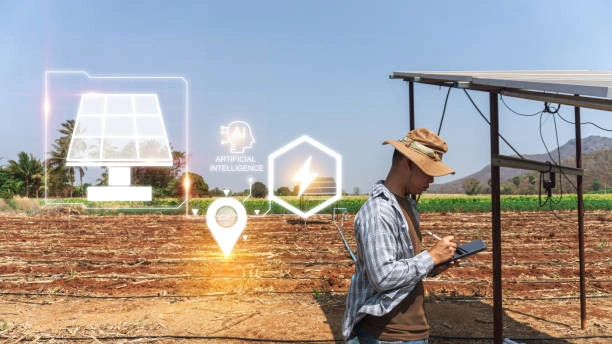Introduction
Rural development is a transformative field that focuses on uplifting rural communities by enhancing their economic, social, and environmental well-being. For individuals passionate about creating sustainable change, this discipline offers a rewarding career path. It addresses the unique challenges faced by rural areas, such as poverty, limited infrastructure, and access to education. By fostering growth in these regions, professionals contribute to the overall development of a nation. This article explores the essence of rural development, the skills required, and how you can excel in this profession through Aime Connect’s innovative educational offerings. Whether you’re a student or a professional seeking a meaningful career, rural development opens doors to impactful opportunities. Let’s dive into how you can embark on this journey and make a difference in rural communities.
Unlocking the Essence of Rural Development
Rural development is the process of improving the quality of life and economic stability in rural areas, which are often isolated and sparsely populated. It involves strategies to enhance agriculture, infrastructure, education, healthcare, and employment opportunities. Unlike urban development, it prioritizes sustainable use of natural resources like forests and farmlands. Transitioning from traditional practices, modern rural development integrates technology and global networks to empower communities. For instance, it addresses issues like poverty, where one-third of rural populations in developing nations live below the poverty line. By promoting equitable access to resources, it ensures long-term socio-economic growth. Understanding this field equips you to tackle real-world challenges and create lasting impact in underserved regions.

Charting Your Path to Professional Excellence
Becoming a rural development professional requires a blend of education, practical experience, and passion for community welfare. Start by pursuing a relevant degree in fields like rural development, agriculture, or social sciences. Complement your studies with internships or volunteer work in rural settings to gain hands-on experience. Networking with NGOs, government bodies, and community organizations can open doors to opportunities. Additionally, certifications in project management or sustainable development enhance your credentials. Engaging in fieldwork, such as community surveys or development projects, builds your expertise. Aime Connect offers tailored courses to guide you, ensuring you develop the knowledge and confidence to thrive in this dynamic field.
Essential Skills for Rural Development Success
To excel in rural development, you need a diverse skill set. Analytical skills are crucial for assessing community needs and designing effective solutions. Communication skills help you engage with diverse stakeholders, from farmers to policymakers. Project management abilities ensure you can plan and execute development initiatives efficiently. Moreover, cultural sensitivity and adaptability are vital for working in varied rural contexts. Technical knowledge in areas like sustainable agriculture or renewable energy adds value to your profile. Problem-solving and leadership skills empower you to navigate challenges and inspire change. Aime Connect’s programs focus on cultivating these competencies, preparing you to address rural challenges with confidence and innovation.
Recommended Courses to Kickstart Your Journey
To build a strong foundation, consider enrolling in courses that align with rural development goals. Programs in sustainable agriculture teach modern farming techniques for higher productivity. Community development courses focus on empowering local populations through education and infrastructure. Environmental management studies equip you to address ecological challenges in rural areas. Additionally, courses in social entrepreneurship foster innovative solutions for economic growth. Aime Connect offers a range of specialized programs tailored to these areas, ensuring you gain practical and theoretical insights. These courses are designed to be flexible, allowing you to learn at your own pace while preparing for a impactful career.
Job Opportunities and Career Scope
The scope for rural development professionals is vast, with opportunities in government agencies, NGOs, international organizations, and private sectors. Roles include project coordinators, community development officers, or policy analysts, each contributing to rural upliftment. Developing nations, where agriculture employs over two-thirds of the population, offer significant demand for such expertise. Salaries vary based on experience and location, but the field’s social impact is unparalleled. With globalization, professionals can work on international projects, enhancing rural-urban linkages. Aime Connect’s placement support connects you with reputable organizations, ensuring your skills translate into meaningful employment opportunities that align with your career goals.
Top Countries for Rural Development Careers
Certain countries stand out as ideal destinations for rural development professionals due to their focus on rural growth. India, with over 60% of its population in rural areas, offers immense opportunities through government schemes and NGOs. Kenya and Ethiopia prioritize agricultural innovation, creating demand for sustainable development experts. Brazil, a global leader in agribusiness, values professionals who can enhance rural productivity. These nations provide supportive policies, funding, and infrastructure for rural projects. Working in such regions allows you to address pressing issues like poverty and food security while gaining international exposure. Aime Connect’s global network helps you explore these opportunities seamlessly.
Time Investment and Learning Modes
The duration of rural development courses varies based on the program’s depth. Certificate courses may take 3-6 months, while diploma programs typically span 1-2 years. Degree courses, such as a Bachelor’s or Master’s, require 3-4 years. Aime Connect offers flexible options, allowing you to choose programs that suit your schedule. Online learning is ideal for working professionals or those with time constraints, offering access to recorded lectures and interactive forums. Offline modes provide hands-on training through workshops and field visits, fostering practical skills. Both formats ensure comprehensive learning, but your choice depends on your lifestyle and career goals.
Special Features of Aime Connect for You
Aime Connect revolutionizes learning with its unique features tailored for aspiring rural development professionals. You gain access to expert-led courses designed by industry leaders, ensuring relevant and up-to-date content. Interactive tools, such as virtual simulations and case studies, enhance your practical understanding. Personalized mentorship from experienced professionals guides your career path. Additionally, Aime Connect’s community forums connect you with peers and experts worldwide, fostering collaboration. The platform’s placement assistance links you with top employers, while its flexible learning options cater to your schedule. Visit https://aimeconnect.com to explore these benefits and start your journey toward a fulfilling career.
Conclusion
Rural development is more than a career; it’s a commitment to transforming lives in underserved communities. By acquiring the right skills and education, you can play a pivotal role in fostering sustainable growth. Aime Connect empowers you with cutting-edge courses, expert guidance, and global opportunities to excel in this field. Whether you choose online or offline learning, the platform’s innovative features ensure a seamless experience. Embrace this opportunity to make a lasting impact while building a rewarding career. Thank you for exploring this path with us. Sign up and enjoy free special features from Aime Education Portal at https://aimeconnect.com.



